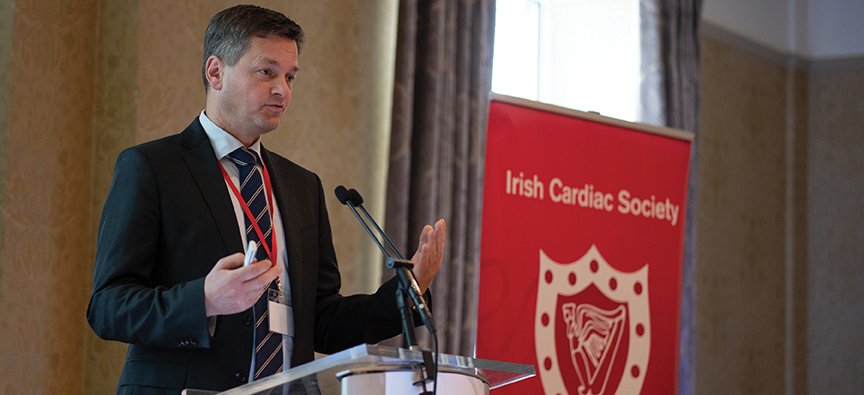
Prof Stephan Achenbach, President-Elect
of the European Society of Cardiology (ESC), spoke exclusively with the Medical Independent (MI) at the recent Irish Cardiac Society
(ICS) Annual Scientific Meeting and AGM about the perception of Irish
cardiologists abroad and the ever-growing links between the two societies.
“The ESC
greatly values the ICS, for two main reasons,” explained Prof Achenbach. “First
of all, we value the ICS because of the unbelievably high level of professional
expertise, but also, as my colleagues and myself have observed, the way in
which this Society nurtures the young [cardiologists],” he told MI.
“Even during training, very early on, the young people on
their way to becoming cardiologists are perceived as being ‘part of the family’
in the ICS and receive fantastic support, and that’s something that is very
unusual. In many other countries, there is no such support – sometimes these
younger individuals are perhaps seen as competition in some way. But the
sentiment that I have about the model here is that it is a really nurturing
relationship and environment for future cardiologists. That is something that
seems exceptional to me and I am very impressed by it.”
Prof Achenbach was also asked whether his role as
President of the ESC will involve maintaining and strengthening collaborations
and links with the ICS. “That is one of the areas I will focus on during my
presidency,” he said.
“My plan is to make the ties between the ESC and the ICS
even closer than they are already. We in the ESC must not forget that it was
actually the national cardiac societies which founded us in 1950 – there were
14 national societies initially that founded the ESC and the national cardiac
societies are the basis for everything we do.
“Some national cardiac societies are different from
others because they speak English as their native language – that is good and
automatically makes the distance between these national cardiac societies a
little bit smaller, because otherwise, we face an additional challenge because
some of the practitioners may not be fluent in English, and their patients may
not be fluent either,” he explained.
“This is why the native English-speaking countries have
an advantage to begin with but even with all that said, it is certainly my plan
to make the ESC and the ICS even closer than they have been in the past.”
The ESC and ICS together face huge challenges in driving
cardiac care due to the ever-increasing population-level issues of the obesity
epidemic and ageing populations and Prof Achenbach acknowledged that both
societies must rise to these challenges. “We all have our hands full,” he told MI. “The population
is changing – we have had successes in treating cardiovascular disease, as well
as other successes in areas such as oncology. This makes our patient population
older, but these people also have more comorbidities.
“This is challenging, for two reasons,” he continued.
“First of all, [utilising] the sheer effort, expenses and resources that are necessary
to care for everybody will be challenging, but also, when you think about it,
most of the studies that we base our treatments on are in patients who are
young – or at least are not very old and don’t have many comorbidities – and
often, patients who are older and have many comorbidities are excluded. So we
need to adapt and realise that for many of the patients we treat, the
scientific data does not apply. That’s something that needs to find its way
into the guidelines in the future and will become more and more important.”





Leave a Reply
You must be logged in to post a comment.